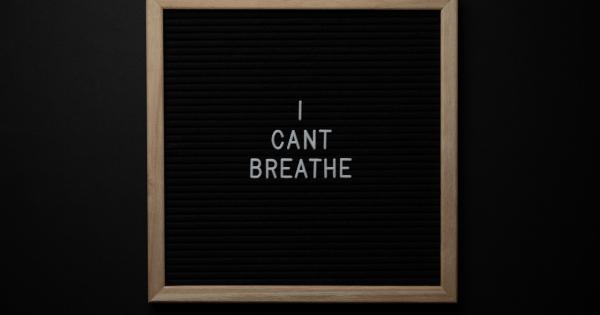Nervous anorexia, also known as anorexia nervosa, is an eating disorder characterized by an intense fear of gaining weight and a distorted body image.
It is a complex psychological condition that affects both men and women, typically starting in adolescence or early adulthood. Individuals with nervous anorexia often exhibit specific psychological markers that can help identify and diagnose the disorder. This article aims to explore these psychological markers in detail.
1. Perfectionism
One of the key psychological markers of nervous anorexia is perfectionism. Individuals with this disorder often hold unrealistically high standards for themselves in various areas of life, including appearance, academics, and personal achievements.
They may feel a constant need to control their body and weight as they strive to attain an unattainable perfection.
2. Obsession with Body Image
People with nervous anorexia have an obsessive preoccupation with their body image. They may spend significant amounts of time analyzing their physical appearance, constantly checking their weight, and measuring body parts.
Their self-worth is often strongly tied to how they perceive their body, leading to low self-esteem and a distorted body image.
3. Extreme Fear of Weight Gain
A hallmark feature of nervous anorexia is an intense and irrational fear of gaining weight. Individuals may restrict their calorie intake to dangerously low levels, engage in excessive exercise, or use purging behaviors to achieve weight loss.
The fear of weight gain overrides physiological hunger cues and can result in severe malnutrition and health complications.
4. Control and Rigidity
Individuals with nervous anorexia commonly exhibit an excessive need for control and rigidity in their lives. They often impose strict rules and rituals around food, such as avoiding specific food groups or meticulously measuring portions.
These behaviors provide a sense of control in a life that may feel chaotic or overwhelming.
5. Anxiety and Depression
Anxiety and depression frequently coexist with nervous anorexia. The disorder itself can contribute to the development of these mental health conditions, and they can exacerbate the symptoms of anorexia.
Anxiety may manifest as social anxiety, fear of eating in public, or excessive worrying about weight gain. Depression can lead to feelings of hopelessness, despair, and a lack of motivation to seek help.
6. Distorted Body Image
People with nervous anorexia often have a distorted body image, meaning they perceive their bodies inaccurately. They may see themselves as overweight or much larger than they actually are, even when they are dangerously underweight.
This distorted body image reinforces the desire for weight loss and perpetuates the cycle of disordered eating.
7. Social Withdrawal and Isolation
Due to the secretive nature of their behaviors and the shame associated with their disorder, individuals with nervous anorexia commonly withdraw from social activities and isolate themselves from friends and family.
They may avoid gatherings involving food, make excuses to skip meals with others, or gradually distance themselves from once-enjoyed social interactions.
8. Emotional Dysregulation
Emotional dysregulation is another psychological marker often observed in individuals with nervous anorexia.
They may struggle to manage and express their emotions effectively, leading to mood swings, outbursts of anger, or difficulty in understanding and identifying their feelings. This emotional turmoil can further reinforce disordered eating behaviors as a coping mechanism.
9. Intense Self-Criticism
Self-criticism and a negative self-image are prevalent among those with nervous anorexia. They primarily judge themselves based on their appearance and ability to control their weight.
They may belittle their achievements and constantly compare themselves to others, fostering a sense of inadequacy and perpetuating the cycle of disordered eating.
10. Distorted Perception of Hunger
Individuals with nervous anorexia often experience an altered perception of hunger and fullness. They may ignore or suppress feelings of hunger and rely solely on external cues or diet rules to determine when and what to eat.
This distortion can lead to severe malnutrition and exacerbate the physical consequences of the disorder.
Conclusion
Nervous anorexia is a psychological disorder characterized by specific markers that help identify and diagnose the condition.
These markers include perfectionism, obsession with body image, extreme fear of weight gain, control and rigidity, anxiety and depression, distorted body image, social withdrawal and isolation, emotional dysregulation, intense self-criticism, and distorted perception of hunger. Recognizing these psychological markers is crucial for early intervention and effective treatment of nervous anorexia.




























